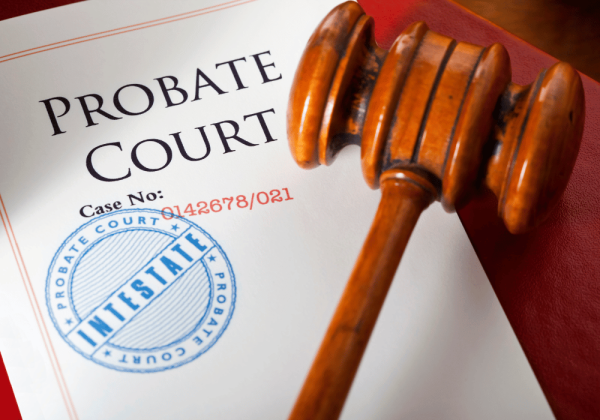Thinking about the future can be daunting, especially when it involves legal matters like your estate. Many people put off estate planning, believing it’s something only for the wealthy or the elderly. However, having a clear plan is one of the most important things you can do for your family, regardless of your age or financial situation. Understanding the basics of Ontario estate law is the first step toward protecting your assets and ensuring your loved ones are taken care of according to your wishes.
This guide will demystify the key components of estate planning in Ontario. We will cover why a Will is essential, the crucial role of Powers of Attorney, and what the probate process entails. Our goal is to provide you with the knowledge and confidence to make informed decisions for your family’s future.
The Cornerstone of Your Estate Plan: The Will
 A Last Will and Testament is the legal document that outlines how you want your property and assets (your “estate”) to be distributed after your death. Without a Will, you die “intestate,” and the government will decide how to divide your assets according to a rigid formula set out in Ontario’s Succession Law Reform Act. This formula may not reflect your wishes, potentially leading to family disputes and unintended consequences for your loved ones.
A Last Will and Testament is the legal document that outlines how you want your property and assets (your “estate”) to be distributed after your death. Without a Will, you die “intestate,” and the government will decide how to divide your assets according to a rigid formula set out in Ontario’s Succession Law Reform Act. This formula may not reflect your wishes, potentially leading to family disputes and unintended consequences for your loved ones.
Creating a Will gives you control. You can name an executor (now called an “estate trustee” in Ontario) to manage your estate, specify who will receive your assets, and appoint guardians for any minor children. This document is your final voice, providing clear instructions that can prevent conflict and uncertainty during an already difficult time for your family. It is the most fundamental piece of any sound estate plan.
Beyond the Will: Powers of Attorney
While a Will addresses what happens after you pass away, Powers of Attorney deal with decisions made during your lifetime if you become incapacitated. Incapacity can result from an accident, illness, or cognitive decline, leaving you unable to manage your own affairs. Ontario estate law recognizes two distinct types of Powers of Attorney to protect you in these situations, and both are critical components of a comprehensive estate plan.
Having these documents in place prevents your family from having to go to court to be appointed as your guardian, a process that is often costly, time-consuming, and stressful. It allows you to choose who you trust to make these important decisions on your behalf.
Power of Attorney for Property
A Power of Attorney for Property grants someone you trust (your “attorney”) the authority to make decisions about your financial affairs. This can include managing your bank accounts, paying bills, collecting debts, managing investments, and buying or selling real estate. You can make it effective immediately or have it “spring” into effect only upon your incapacity. This document ensures your financial responsibilities are handled seamlessly if you are unable to do so yourself, protecting your financial stability and the well-being of those who depend on you.
Power of Attorney for Personal Care
A Power of Attorney for Personal Care empowers your chosen attorney to make decisions about your health and well-being. This includes decisions related to medical treatments, housing, nutrition, and other aspects of personal safety and hygiene. This person becomes your voice for healthcare matters when you cannot speak for yourself. It is crucial to choose someone who understands your values and wishes regarding medical care, as they may have to make difficult decisions on your behalf, including those related to end-of-life care.
Understanding the Probate Process
 When a person with a Will passes away, their estate often goes through a process called probate. Probate is the legal procedure where the Ontario Superior Court of Justice officially validates the Will and confirms the authority of the estate trustee to act on its behalf. The court issues a document, now called a Certificate of Appointment of Estate Trustee with a Will, which gives the trustee the legal power to manage and distribute the estate’s assets.
When a person with a Will passes away, their estate often goes through a process called probate. Probate is the legal procedure where the Ontario Superior Court of Justice officially validates the Will and confirms the authority of the estate trustee to act on its behalf. The court issues a document, now called a Certificate of Appointment of Estate Trustee with a Will, which gives the trustee the legal power to manage and distribute the estate’s assets.
This certificate is often required by financial institutions, like banks, before they will release the deceased’s assets to the trustee. The process involves submitting the original Will, a detailed inventory of the estate’s assets, and paying an Estate Administration Tax (often referred to as probate fees). While not every estate needs to be probated, it is a common and necessary step for many, ensuring that the distribution of assets is handled legally and transparently, providing protection for both the trustee and the beneficiaries.
Common Misconceptions About Ontario Estate Law
Many myths circulate about Ontario estate law, leading to confusion and inaction. One common misconception is that a spouse automatically inherits everything if there is no Will. This is not true. In Ontario, if you die intestate with a spouse and children, your spouse is entitled to a “preferential share” (currently $350,000), with the remainder of the estate being divided between the spouse and children. This could force the sale of the family home to pay out the children’s share.
Another myth is that handwritten or “holograph” Wills are just as good as professionally drafted ones. While valid if they meet strict legal requirements, they often contain ambiguities or fail to account for all assets, leading to costly court applications for interpretation. Investing in professional legal advice ensures your Will is clear, comprehensive, and legally sound, avoiding potential pitfalls that can undermine your final wishes.
Navigating the complexities of Ontario estate law on your own can be risky. Generic online templates and do-it-yourself kits often fail to address the unique details of your family and financial situation. An experienced lawyer can provide tailored advice, ensuring your documents are legally compliant and accurately reflect your intentions. They can help you structure your estate to minimize taxes and probate fees, protecting the value of the assets you pass on to your beneficiaries.
A lawyer ensures that all legal formalities are met, preventing your Will from being challenged or declared invalid. This professional guidance provides invaluable peace of mind, knowing that you have taken every step to secure your legacy and protect your loved ones.
At Nesbitt Coulter Law, we understand that estate planning is a personal and sensitive process. Our experienced team is dedicated to providing clear, compassionate, and comprehensive estate planning services. We work with you to understand your goals and craft a plan that provides security for you and your family.
Don’t leave your family’s future to chance. Contact us today to schedule a consultation and learn how we can help you create a robust estate plan with confidence.

